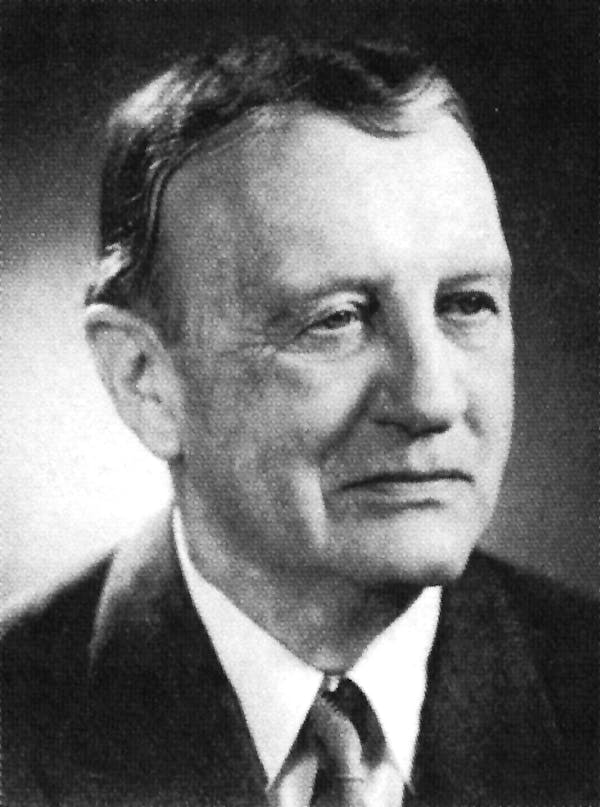
Beeghly, Leon A.
2000 - Standard Slag Co.
Leon A. Beeghly found a market for his innovation and quietly shared his wealth.
In Youngstown, "Beeghly" means "giving." Today, second and third generations of the Beeghly family serve on local boards, operate companies and occasionally unveil their latest projects, such as the Beeghly College of Education at Youngstown State University, dedicated in 1998. It was funded by $2.2 million of the Beeghly family legacy created by Youngstown industrialist Leon A. Beeghly, patriarch of one of the Mahoning Valley's most generous families.
Leon Beeghly was born in 1884 near Bloomville in Northwest Ohio, where he worked hard on the family farm and spent Sundays at the Methodist church. He finished high school first in his class of nine and studied accounting briefly at Oberlin Business College before becoming a teacher in a one-room school.
In 1904, Beeghly took a job with the France Stone Co., a Bloomville quarry company. He helped the company market flux stone, an important resource as the steel industry burgeoned. On sales trips, Beeghly noticed large piles of blast-furnace slag waste from iron-ore, coke and limestone processing. The slag was typically hauled away by train, but Beeghly recognized that it could work like quarry rock if it were crushed and screened like stone.
He moved to Toledo in 1908 and persuaded France Stone to open a subsidiary, the France Slag Co., which drew the attention of steel powers such as Carnegie Steel Co; however, Northwest Ohio was so rich in limestone that France Stone paid little attention to Beeghly's innovation.
Impatient, Beeghly moved to New York to form the Buffalo Slag Co. in 1912 with his brother-in-law, H.N. Snyder. The slag was widely used in highway construction in the Midwest. Beeghly realized that with few limestone deposits and a thriving steel industry, eastern Ohio was an ideal market for slag. He traveled to Youngstown in 1914 with two partners, William Bliss and William Kilcawley, to start the Standard Slag Co. In 1918, Beeghly, wife Mabel and their family, which would grow to five boys and two girls, adopted Youngstown as their hometown.
Standard Slag expanded aggressively and soon had 25 plants. "He had a lot of initiative," says son R. Thornton Beeghly. 'The country was really opening up, and he became really involved in developing the infrastructure."
Still, times were rough in the 1930s. Beeghly was once turned down by a loan officer who said that his product was useless, since all necessary highways were already built. Despite this and the Depression, the company continued growing and began acquiring sand plants and limestone quarries to feed the business even as some steel plants closed.
Beeghly also earned a reputation for helping local inventors market their industrial ideas. An example is the Steckel mill, a steel-rolling process created by Abram P. Steckel and patented in 1932. Beeghly formed the Cold Metal Process Co. and endured rounds of patent litigation to develop the Steckel mill, which has experienced its greatest popularity in the past few decades.
Beeghly also embraced a Cleveland-area invention, the industrial-engine-ignition system with continuous sparking. The idea reached market slowly but ultimately became Altronics Inc., of Girard, which the Beeghly family still operates. Beeghly's other business interests included Metal Carbides, which produced machine tools and dies for more than 50 years. He also served as director of Youngstown Sheet and Tube Co. until 1958 and remained chairman of the board of Standard Slag until his death in 1967. (The Standard Slag Group operated independently until 1989.)
For all of his professional successes, Beeghly is remembered just as easily for his community involvement. He served three terms as president of the Youngstown Chamber of Commerce and 41 years as a trustee at Mount Union College. Often described as a "teetotaler," Beeghly was concerned with alcoholism and quietly backed organizations dedicated to his cause. He also formed a foundation in 1941 that supported churches, missions, medical organizations and colleges such as Mount Union, Ohio Northern University and American University to the tune of $35 million over the next 50 years.
Beeghly's humble giving style is legendary. He once received a request for a large donation from Howard Jones, former president of Youngstown College (now Youngstown State University). With no fanfare, Beeghly called back and asked Jones to stop by to pick up a check. Beeghly was so modest that when asked about a recreation area he built in his hometown, he replied, "I always liked baseball."
Such humility could only be expected of a man whose valedictorian address was called "Charity and Civilization." Reflecting on his adopted hometown after a lifetime of industrial and philanthropic success, Beeghly once said, "Youngstown has been good to me." More than 30 years later, the statement resonates with the greatest irony.
Written by Jeff Rozic

)